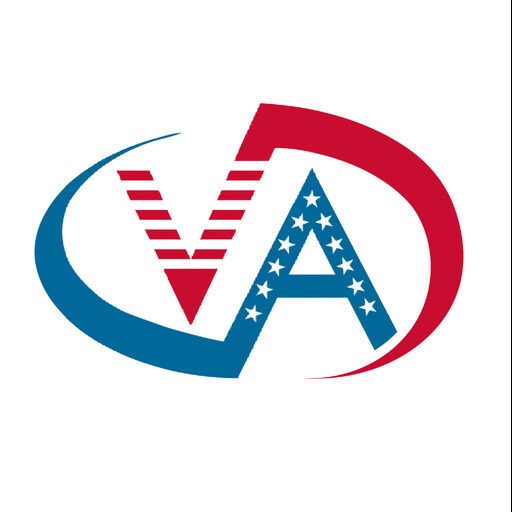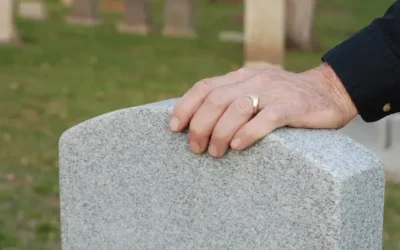
The VA loan program offers significant benefits to eligible Veterans, active-duty service members, and, in certain cases, surviving spouses.
Transferring VA loan benefits to a surviving spouse can provide crucial financial assistance during an incredibly difficult time. However, this process involves understanding specific eligibility criteria, the transfer process, and how these benefits fit within the current housing market landscape.
This article will guide you through the process of transferring VA loan benefits to a surviving spouse, discuss the benefits, and explore what the housing market looks like for those eligible.
VA Loan Overview
A VA loan is a mortgage loan option that is guaranteed by the Department of Veterans Affairs (VA). It allows eligible individuals to purchase a home with no down payment, lower interest rates, and no private mortgage insurance (PMI).
While typically associated with Veterans and service members, surviving spouses may also be eligible for these benefits, providing they meet specific criteria set by the VA.
Eligibility Requirements for Surviving Spouses
Surviving spouses of Veterans may qualify for VA loan benefits under certain conditions. These include:
- The Veteran died in service or from a service-related injury.
- The spouse has not remarried (or remarried after age 57).
- The Veteran was missing in action (MIA) or a prisoner of war (POW) for at least 90 days.
Each of these factors plays a crucial role in determining whether the surviving spouse can assume the benefits of a VA loan. Eligibility is proven through a Certificate of Eligibility (COE), which can be obtained via the Department of Veterans Affairs.
Step-by-Step Process to Transfer VA Loan Benefits to a Surviving Spouse:
- Determine Eligibility: The surviving spouse must meet the VA’s eligibility criteria to qualify for a VA loan transfer.
- Obtain a Certificate of Eligibility (COE): This is a crucial document that confirms the surviving spouse's eligibility for VA loan benefits.
- Find a VA-Approved Lender: The surviving spouse must work with a lender who is familiar with VA loans and can guide them through the process.
- Apply for the Loan: Once eligibility is confirmed, the lender can begin the application process for the surviving spouse to transfer the VA loan benefits and potentially refinance an existing loan.
Benefits of VA Loan Transfer to a Surviving Spouse
Transferring VA loan benefits provides numerous advantages for surviving spouses, especially in a fluctuating housing market. Here are some of the primary benefits:
- No Down Payment Requirement: Like Veterans, eligible surviving spouses can obtain a mortgage without needing a down payment, a significant advantage when purchasing a home in competitive markets.
- Lower Interest Rates: VA loans typically offer lower interest rates compared to conventional mortgages, making them a cost-effective solution for surviving spouses looking to secure housing.
- No Private Mortgage Insurance (PMI): VA loans do not require PMI, further reducing the monthly costs associated with a mortgage.
Tax Benefits and Financial Advantages of VA Loans for Surviving Spouses
VA loans offer significant financial benefits for surviving spouses, not only through favorable loan terms but also through associated tax advantages and relief programs. These benefits can provide long-term savings and financial security.
Mortgage Interest Deductions
One of the key tax advantages of VA loans is the ability to deduct mortgage interest on your federal income taxes. This deduction applies to most home loans, but VA loans make homeownership more accessible, allowing surviving spouses to benefit from this tax break even with little to no down payment. Here’s how it works:
- Interest Deduction Limits: You can deduct interest on loans up to $750,000 for homes purchased after December 15, 2017.
- Impact on Taxes: Deducting mortgage interest lowers your taxable income, potentially reducing the overall amount you owe.
- Eligibility: Surviving spouses who use a VA loan for their primary residence qualify for this deduction.
Property Tax Exemptions
Many states offer property tax exemptions specifically for surviving spouses of Veterans. These exemptions vary by state but often include:
- Full or Partial Exemptions: Some states waive property taxes entirely, while others offer partial reductions.
- Eligibility Criteria: Exemptions often depend on factors like whether the Veteran died in the line of duty or had a service-connected disability.
For example:
| State | Property Tax Benefit | Eligibility |
|---|---|---|
| Texas | Full exemption on primary residence | For spouses of Veterans killed in action |
| Florida | Full exemption for service-related deaths | Spouses who have not remarried |
Resources and Support for Surviving Spouses
Surviving spouses of Veterans have access to a wide range of resources to help navigate housing, financial, and emotional challenges. From Veteran support organizations to government programs, these resources provide critical assistance for housing needs and beyond.
Veteran Support Organizations
Several non-profit organizations specialize in helping surviving spouses with housing, financial guidance, and emotional support:
Veterans of Foreign Wars (VFW)
The Veterans of Foreign Wars (VFW) is one of the nation’s oldest and largest Veteran support organizations. It provides a variety of services to help Veterans and their families, including:
- Financial Counseling: Offers tailored advice on budgeting, managing debts, and maximizing VA loan benefits to ensure financial stability.
- Emergency Assistance: Provides immediate financial aid for housing costs, medical bills, or other urgent needs to help families during difficult times.
- Local Post Support Networks: Facilitates connections with local VFW chapters, offering camaraderie, peer support, and access to community resources for surviving spouses.
American Legion
The American Legion is a prominent advocate for Veterans and their families, offering numerous programs and support systems:
- Housing Guidance: Assists surviving spouses in understanding their VA loan options and navigating the homebuying or refinancing process. This includes referrals to VA-approved lenders and housing counselors.
- Community Connection: Builds support networks by connecting surviving spouses with other Veterans’ families, fostering a sense of belonging and mutual assistance.
- Educational Benefits Guidance: Helps families explore other VA benefits, such as educational assistance or grants that may complement housing resources.
Tragedy Assistance Program for Survivors (TAPS)
TAPS is dedicated exclusively to supporting the families of fallen service members, offering a comprehensive suite of services:
- Emotional Support: Provides grief counseling, peer mentoring, and access to a 24/7 support hotline to help surviving spouses cope with loss.
- Financial Assistance: Includes personalized financial planning services and emergency grants to address immediate housing or living expenses.
- Housing Advice: Offers guidance on leveraging VA loan benefits for homebuying or refinancing, as well as resources for locating affordable housing.
- Survivor Programs: Hosts retreats, seminars, and community events designed to help surviving spouses connect, heal, and rebuild their lives.
Housing Counseling Services
Housing counseling can help surviving spouses understand their VA loan benefits and navigate the homebuying or refinancing process:
- HUD-Approved Housing Counselors: Offer free or low-cost housing advice tailored to VA loan users.
- Operation Homefront: Provides transitional and permanent housing assistance to surviving spouses in need.
Local VA Offices
Local VA offices are a critical resource for accessing personalized assistance:
- Services Offered: Help with obtaining a Certificate of Eligibility (COE), accessing housing benefits, and applying for grants.
- How to Find Your Local Office: Visit the VA's office locator to identify the nearest VA regional center.
Additional Government Programs
- U.S. Department of Housing and Urban Development (HUD): HUD provides information on affordable housing programs that may complement VA loan benefits.
- VA Specially Adapted Housing (SAH) Grants: SAH grants help surviving spouses modify their homes to meet accessibility needs or repair aging structures.
By leveraging these tax advantages and financial relief programs, surviving spouses can reduce the financial burden of homeownership and gain greater stability in their housing journey.
How Current Market Conditions Affect VA Loans for Surviving Spouses
In the current housing market, rising interest rates and limited inventory can make it challenging for anyone to find a home. However, VA loans still offer some of the best terms available to borrowers, even in today’s competitive market.
Comparison of VA Loan vs. Conventional Loan Rates
| Loan Type | Interest Rate (APR) | PMI Required | Down Payment Required |
|---|---|---|---|
| VA Loan (15-Year Fixed) | 5.25% | No | No |
| VA Loan (30-Year Fixed) | 5.99% | No | No |
| Conventional Loan (30-Year Fixed) | 6.85% | Yes | Yes |
How to Obtain a Certificate of Eligibility (COE) as a Surviving Spouse
Obtaining a COE is one of the first and most important steps for a surviving spouse looking to transfer VA loan benefits. There are three ways to obtain this certificate:
- Through a VA-Approved Lender: Most VA lenders can assist in obtaining the COE electronically.
- Online via the VA’s eBenefits Portal: Surviving spouses can apply directly through the VA’s eBenefits portal.
- By Mail: Completing VA Form 26-1880 and mailing it to the VA Regional Loan Center is another option, though it takes longer.
Common Challenges When Transferring VA Loan Benefits
While VA loans offer great benefits, there are a few challenges that surviving spouses may face when transferring the benefits:
- Proof of Eligibility: Ensuring that all documents are in order, including the COE, is critical. Missing documentation can delay the process.
- Current Loan Status: If the Veteran previously defaulted on a VA loan, this could affect the amount of entitlement the surviving spouse is eligible for. This may result in a lower loan limit.
- Changing Market Conditions: The fluctuating housing market, especially with high demand and limited inventory, can present challenges when trying to find a suitable home within a certain budget.
COE Eligibility Based on Military Service and Status
| Service Status | Required Time of Service | COE Eligibility Criteria |
|---|---|---|
| Veterans | 90 consecutive days during wartime | Eligible |
| Active-Duty Service Members | 181 consecutive days during peacetime | Eligible |
| National Guard/Reservists | 6 years of service or 90 days of active service | Eligible |
| Surviving Spouses | Death of service member in the line of duty or from a service-related injury | Eligible |
Frequently Asked Questions
How do I transfer VA loan benefits to my surviving spouse?
To transfer VA loan benefits to a surviving spouse, the spouse must meet eligibility criteria and obtain a Certificate of Eligibility (COE) through the VA or a VA-approved lender.
Can surviving spouses qualify for VA loan benefits if they remarry?
If a surviving spouse remarries before the age of 57, they lose their eligibility for VA loan benefits. However, remarriage after age 57 retains eligibility.
Do surviving spouses have to pay the VA funding fee?
Surviving spouses who qualify for a VA loan are typically exempt from paying the VA funding fee, which helps reduce the overall cost of obtaining the loan.
What are the current VA loan interest rates for surviving spouses?
As of 2026, the interest rates for VA loans range from 5.25% for a 15-year fixed mortgage to 5.99% for a 30-year fixed mortgage. Rates fluctuate based on market conditions.
Can surviving spouses refinance a VA loan?
Yes, surviving spouses can refinance an existing VA loan through options like the VA Interest Rate Reduction Refinance Loan (IRRRL) or a VA Cash-Out Refinance.
How do housing market conditions affect surviving spouses using VA loans?
Rising home prices and interest rates can make it more challenging to find affordable housing, but VA loans remain a viable option for surviving spouses due to their favorable terms.
What happens if the Veteran previously defaulted on a VA loan?
If the Veteran defaulted on a VA loan, the surviving spouse may face a lower loan entitlement, which could affect the loan amount they qualify for.

The VA Loan Network Editorial Team is comprised of dedicated mortgage specialists and financial writers committed to providing veterans and service members with accurate, up-to-date information on VA loan benefits, eligibility, and the home-buying process.








